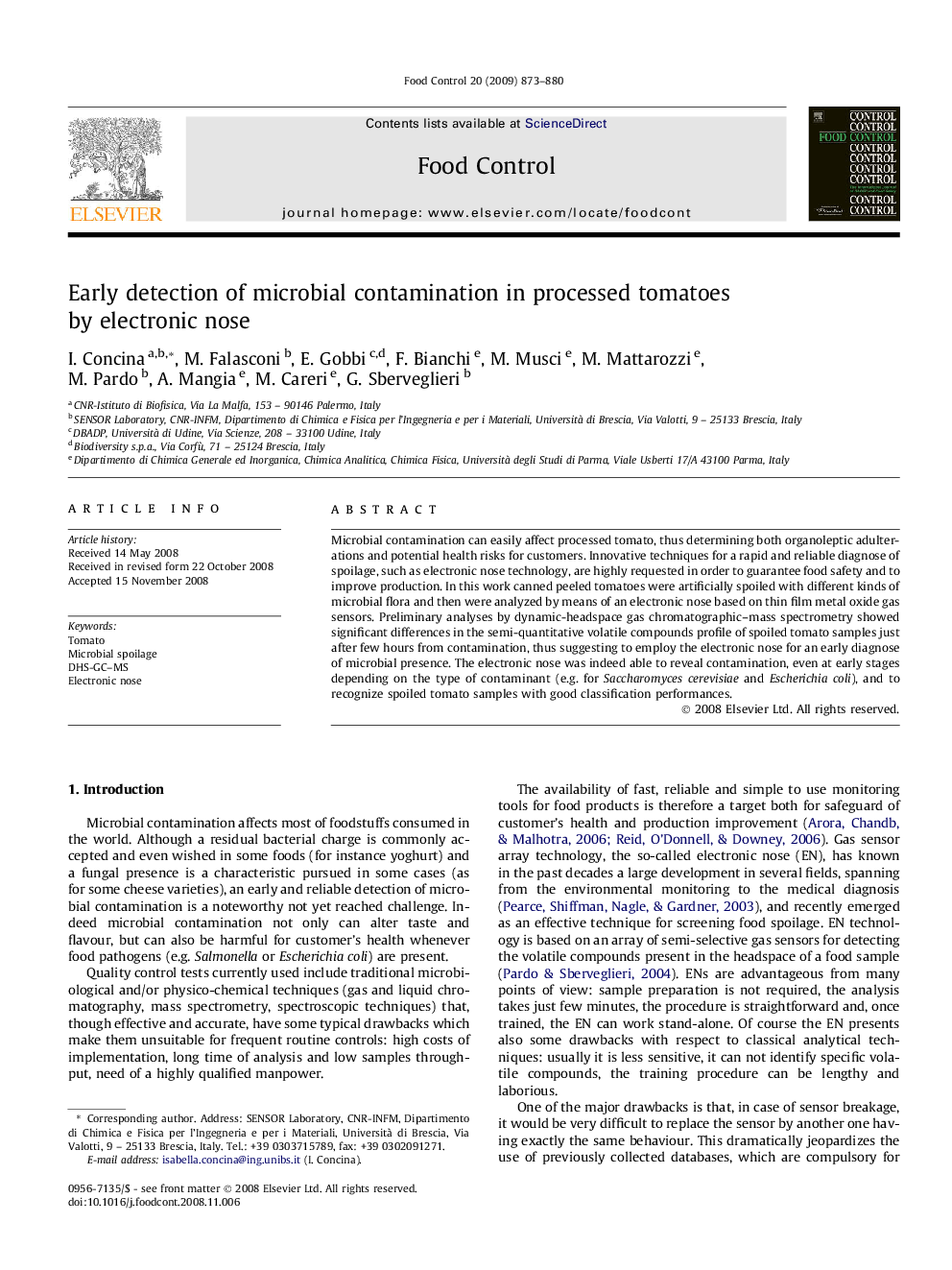| Article ID | Journal | Published Year | Pages | File Type |
|---|---|---|---|---|
| 4560171 | Food Control | 2009 | 8 Pages |
Microbial contamination can easily affect processed tomato, thus determining both organoleptic adulterations and potential health risks for customers. Innovative techniques for a rapid and reliable diagnose of spoilage, such as electronic nose technology, are highly requested in order to guarantee food safety and to improve production. In this work canned peeled tomatoes were artificially spoiled with different kinds of microbial flora and then were analyzed by means of an electronic nose based on thin film metal oxide gas sensors. Preliminary analyses by dynamic-headspace gas chromatographic–mass spectrometry showed significant differences in the semi-quantitative volatile compounds profile of spoiled tomato samples just after few hours from contamination, thus suggesting to employ the electronic nose for an early diagnose of microbial presence. The electronic nose was indeed able to reveal contamination, even at early stages depending on the type of contaminant (e.g. for Saccharomyces cerevisiae and Escherichia coli), and to recognize spoiled tomato samples with good classification performances.
